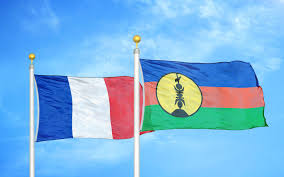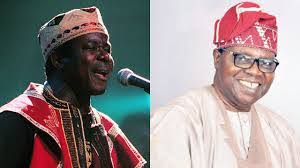Like it or not, the truth is, Fulani herdsmen and Fulani as an ethnic nationality have of recent become an endangered group. Rightly or wrongly, a large section of Nigerians have succeeded in branding the Fulani herdsmen as a terror group inclined towards banditry, kidnapping and other forms of violent crimes.
Expression such as: Fulani-criminals, Fulani-killers, Fulani-marauders, herdsmen-killers, etc, have been making the major headlines and lead stories of most national dailies, especially those from south. However, no one can dispute the fact that there are criminal minds amongst the Fulani just as there are criminals among other major and minority ethnic groups in the country.
The only difference is, why would the Fulani as a race be singled out for categorization and blanket identification as a criminal group, without considering the injurious consequences of the dignity, reputation, honour and sensibilities of the millions of innocent Fulani who are also herdsmen and others who are scattered across other endeavours, engaging in noble and legal means of livelihood?
I expect the media to develop a phrase or term such as: “Igbo armed-robbers or “Yoruba –Fraudster” to balance the equation. Common! Let’s be serious, a spade should be called a spade, not by any other name or nomenclature, a criminal is criminal, his ethnic background, religion or any primordial affinity is irrelevant to his character and actions.
It is unfortunate to the extent that the Fulani or Fulani herdsmen, innocent or not, have now been asked and directed to leave the forest reserve of Ondo state or they must come forward to register with the relevant authorities of Ondo state, if they are to reside or do business in the state.
This is another topic. For now, we are more concerned with the plight of the majority and innocent Fulani herders or not. In these circumstances, since the Fulani herdsmen have become or seem to become an endangered class, to the extent of being tagged as “persona-non-grata” in some places and in their country. I humbly admonish governors of the far-northern states to urgently embrace and emulate the option and initiatives of Governor Abdullahi Umar Ganduje of Kano state to save the Fulani and the north from further ridicule and embarrassment.
Since 2017, Ganduje had been vociferously seeking and planning enduring avenues of how to mitigate the frequent violent clashes between the Fulani herdsmen and farmers across the states of the federation.
Dr Ganduje out of concern was the first Northern governor who genuinely embraced and expended billions of naira to established a permanent settlement for the itinerant pastoralist in the forest reserve of Kano state.
To secure the forest against bandits and criminal incursion, the governor had with the approval of President Muhammadu Buhari erected military facilities in the vast forest. Interestingly too, the Nigerian military had found the forest and the facilities and structures put together in the forest to be convenient, making it possible for the Nigerian Army to conduct its passing out parade of the 2020/2021 regular-intake in the Falgore forest in January 2021.
Within the forest, Ganduje had already facilitated the construction of earth-dams, Housing projects and other critical social amenities for the convenience of the Fulani herdsmen embedded within. Governor Ganduje has since declared that the Ruga project was not compulsory but a necessity for states that have affinity with the Fulani herders.
For that elaborate pronouncement over Channels Television, Chief Edwin Clark came out to appreciate Ganduje’s maturity for making such clarification at the peak of the “Ruga project” unnecessary media hype.
Similarly, Ganduje was the first governor to draw the attention of the federal government as a matter of national security to curtail the influx of foreign herdsmen, which was endorsed by the House of Representatives.
Again very recently, Ganduje made another fundamental policy pronouncement, seeking the federal government to ban the movement of cattle either by roads transportation or through itinerant trekking, from the north, to the north-central and southern part of the country all in the attempt to discourage and mitigate any form of belligerence or outright conflagration between the herdsmen and farmers and other traditional land owners on the other hand.
This time also, like the National Assembly endorsed Ganduje’s previous advise to the federal government, almost all the socio-ethnic and cultural organizations such as Afenifere, Ohaneze, Middle-Belt Forum and Pan-Niger Delta have thrown their support behind Ganduje’s advise as a panacea to the lingering herdsmen menace across the country.
On February 6, 2021, in an interview with the Sun newspaper, Baba Ngelzerma had asked rhetorically that: is it only Ganduje who cares about the plight of the Fulani herdsmen, what about the other Northern governors?” Recently, Nobel laureate, Wole Soyinka, had added his voice on the raging herdsmen crisis. He said: “The raging crisis from the criminal activities of herdsmen, especially in the South-west and South-east may snowball into another civil war.”
Many other prominent stakeholders have in recent time expressed worries about the herdsmen menace, while almost all the columnists of the national dailies have focused their writings on the consequences of the prevailing herders’ crisis.
The dilemma is, while the innocent Fulani herdsmen are caught in the web of being accused and unjustifiably labeled as criminals, most of the northern governors have decided to sit on the fence, feigning indifference to the agony, trauma and sufferings of the innocent Fulani herdsmen.
So far, Governor Ganduje has shown that he is a leader who cares about the welfare of his people wherever they may be. Ganduje has on several occasions proved to be a patriotic statesman with penchant for national integration and cohesion. For instance, when some disgruntled northern youths proclaimed what they termed as quit notice to southerners, Ganduje was the first if not the only northern governor who disassociated his people and state from that inciting statement, saying: “We are not part of them, Nigerians, irrespective of religion or ethnicity, have the right to live, reside and do business or own properties in any part of Nigeria as enshrined in section 41(1) of the Constitution.”
Ganduje did not stop there; he proposed a bill to the state House of Assembly, seeking laws that would guarantee every Nigerian citizen residing in Kano state to be identified as an indigene devoid of any discrimination. In Ganduje administration even the traditional heads of other ethnic groups that were not originally from Kano state are currently beneficiaries of certain emolument and financial inducement to recognise and accord respect to the institution they represent.
It is also remarkable to note that, Ganduje was a recipient of numerous awards of excellence and other notable traditional titles within and outside the state, for his show of rare inclusiveness towards other ethnic groups in the state, as well as his liberal and civilized approach to Christian organizations in the state.
He was a recipient of the Christian Association of Nigerian (CAN) award for promoting religious harmony in Kano state. He was also bestowed with several awards by the Igbo and others, even the South East Council of Traditional Rulers honoured him with chieftaincy title as “the defender of the Igbo.” In essence, Ganduje cares about the unity of Nigerians, irrespective of whether they are Fulani, Yoruba, Hausa, Igbo or not. Ganduje should be commended by all.
Bilal is MD, Royal Publicity Publishing Company, 8 Shendam Street, Jos, Plateau state 08167989085




